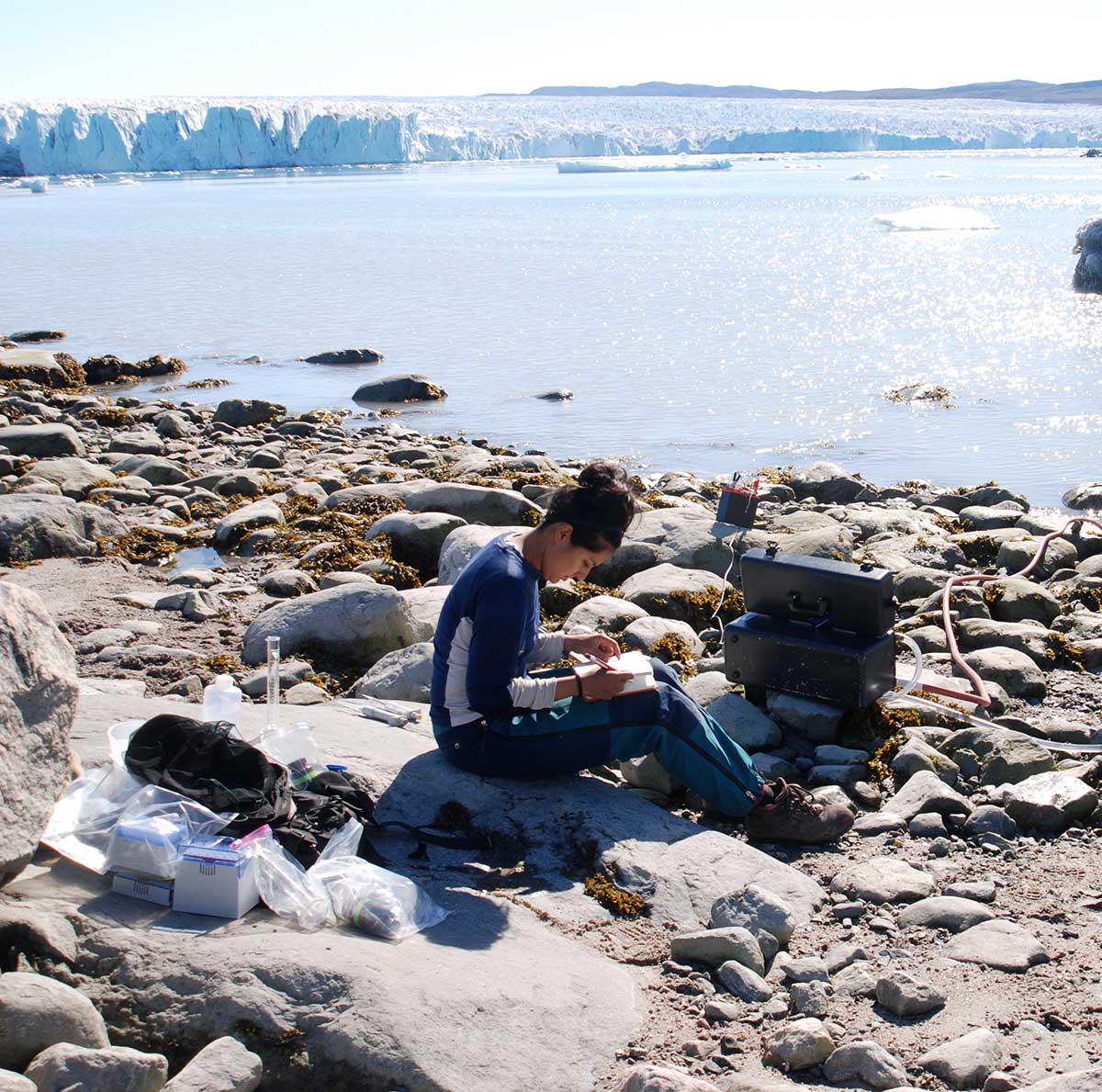
Biogeochemist Maya Bhatia conducting field work on the western margin of the Greenland ice sheet.
How exactly does life gain a foothold in seemingly inhospitable environments, like under a glacier or in the deep ocean? How does it persist in a seemingly hostile environment?
"Life on Earth began something like three-and-a-half billion years ago, and for the first two billion years, it was all microbial," said biogeochemist Maya Bhatia, new assistant professor in the Department of Earth and Atmospheric Sciences and CAIP chair in watershed science. Bhatia's research centres around tiny early forms of life--microbes.
"I'm curious about how micro-ecosystems survive and adapt to changes in their environment, such as changes in the carbon cycle, and also how these microorganisms change their environment," explained Bhatia. Her work has taken her from glaciers to ice sheets to oceans and everywhere in between, studying microbial interactions that mediate food webs and carbon cycling.
Insights from microbial life
Bhatia's research at UAlberta sits at the intersection of biology and chemistry, focusing on how microbes interact with their environment, how they cycle carbon, and how they produce and release nutrients, and what all of this means for downstream marine ecosystems. "You can't talk about climate change without talking about microbes," explained Bhatia.
When environments change, for example, the development of an oxygen-minimum zone in the ocean due to the human activity, microbes are the first to respond.
"When there's not enough oxygen in parts of the ocean, it doesn't mean that everything dies. The big things die, like fish, but microbes thrive," explained Bhatia. "They use different metabolisms to live, which can in turn generate more greenhouse gases like methane and nitrous oxide." Understanding how microbes function, and ultimately their impact on the ecosystem, gives powerful insight into what climate change will look like in the future.
A proud UAlberta science alumna, Bhatia is pleased to return to her alma mater where she received her bachelor's and master's degrees under the supervision of Martin Sharp and Julia Foght in the Department of Earth and Atmospheric Sciences and the Department of Biological Sciences.